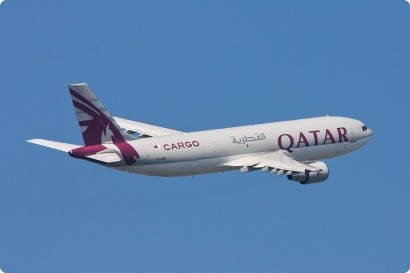
The announcement comes as the Gulf state hosts the UN climate change conference COP18.
The project is being carried out in collaboration with Qatar Airways and Qatar Science and Technology Park (QSTP), and its intention is to produce a sustainable bio-fuel that's feed-stock doesn't use an excessive amount of arable land.
The research team said it has isolated multiple forms of single-celled photosynthetic organisms (cyanobacteria and microalgae), that unique to Qatar and thrive in extreme heat, strong sunlight and highly salty waters all conditions highly prevalent in the region.
They then extracted the lipids to make fuel, and carbohydrate to make bio-ethanol.
If bio-fuel can be successfully produced from this feedstock on a commercial scale, the discovery will significantly reduce one of the airline industry's biggest fixed costs, the researchers said.
"We are at an exciting and critical point in this project. If successful, it could help transform the international aviation industry," said project manager Hareb al-Jabri. "This project is a real example of successful state-backed collaboration, to find sustainable ways of enabling Qatar's development which will have an impact across the world."
The team has scaled up its tests to tanks of 1,500 litres at the university's research farm in Al Khor, north of Doha.
For additional information:

